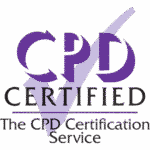Understanding the Root of Nervousness
Identifying Common Causes
Managing nerves when speaking in public will often play a huge part in the success of the speech. Nervousness in this context often stems from fear of judgement, fear of failure, and lack of experience. Recognising these root causes is the first step toward managing them effectively. Understanding that these fears are common can help normalise the experience and reduce the intensity of the anxiety.
Fear of Judgement
The fear of being judged by others can be overwhelming. We worry about how we look, sound, and whether our audience will appreciate our message. This fear often leads to self-consciousness and anxiety, which can hinder our performance.
Fear of Failure
The fear of making mistakes or forgetting what to say can also trigger nervousness. This fear is often exacerbated by the high stakes of the situation, such as presenting to important stakeholders or speaking at a large event.
Lack of Experience
Inexperience in public speaking can contribute to nervousness. The more unfamiliar the situation, the more likely we are to feel anxious. Building experience through practice and exposure is crucial for reducing this anxiety over time.
Managing Nerves Begins with Preparation
Thorough Preparation
Thorough preparation is one of the most effective ways to manage nerves. When you know your material inside and out, you reduce the fear of forgetting or stumbling over your words. Preparation involves organising your content, practicing your delivery, and anticipating potential questions.
Structuring Your Presentation
A clear structure helps you stay on track and ensures your message is delivered logically. Use the takeoff-cruise-landing structure: start with an introduction that outlines what you will cover (takeoff), delve into the main content (cruise), and conclude by summarising key points (landing).
Rehearsing
Rehearsing your presentation multiple times helps solidify your material in your mind. Practice in front of a mirror, record yourself, or present to a trusted friend or family member. This not only improves your delivery but also boosts your confidence.
Visual Aids and Notes
Using visual aids like slides or notes can help you stay organised and serve as prompts during your presentation. However, avoid relying too heavily on them. Aim to engage with your audience directly rather than reading from your slides or notes.
Mindset Shifts to Manage Your Nerves
Focusing on Giving
Shift your focus from what you will receive (approval, recognition) to what you can give (value, knowledge). This mindset reduces self-consciousness and enhances your confidence. When you concentrate on delivering value to your audience, your anxiety naturally decreases.
Visualising Success
Visualisation is a powerful technique for building confidence. Spend a few minutes each day visualising yourself delivering a successful presentation. Imagine the positive reactions from your audience and how you will feel once you have delivered your message effectively.
Positive Affirmations
Positive affirmations can help counter negative thoughts and build a positive mindset. Repeat affirmations such as “I am a confident and effective speaker” or “I am prepared and capable of delivering this presentation” to boost your confidence.
Accepting Nervousness
Accept that feeling nervous is natural and does not mean you will perform poorly. Even experienced speakers feel nervous. The key is to manage this nervousness rather than eliminate it entirely.
Practical Techniques to Manage Nerves
Breathing Exercises
Deep breathing exercises can significantly reduce anxiety by calming your nervous system. Practice diaphragmatic breathing: sit or stand comfortably, place one hand on your abdomen and the other on your chest. Inhale deeply through your nose, allowing your abdomen to expand as your lungs fill with air. Hold your breath for a few seconds, then exhale slowly through your mouth, letting your abdomen fall. Repeat this several times, focusing on the rhythm of your breath. This technique helps reduce physical tension and promotes relaxation. Another helpful technique is box breathing.
Progressive Muscle Relaxation
Progressive muscle relaxation (PMR) is an effective method for reducing physical tension, which often accompanies anxiety. Start by tensing a specific muscle group, such as your hands or shoulders, for about five seconds. Then, release the tension and focus on the sensation of relaxation in that muscle group. Move systematically through different muscle groups in your body, from your feet to your head. Practicing PMR regularly before your presentation can help you feel more relaxed and in control.
Grounding Techniques
Grounding techniques help bring your focus back to the present moment, reducing anxiety and preventing your mind from wandering into negative thoughts. One effective grounding method that will make you a pro at managing nerves is the 5-4-3-2-1 technique.
Identify:
- five things you can see around you.
- four things you can touch.
- three things you can hear.
- two things you can smell.
- one thing you can taste.
By anchoring your attention to your immediate environment, grounding techniques can help calm your nerves and enhance your focus.
Mindfulness and Meditation
Mindfulness and meditation are powerful practices for managing nerves and enhancing focus. The first involves staying present and fully engaged in the current moment, without judgment. To practice mindfulness, focus on your breathing, bodily sensations, or any single point of focus. Meditation, on the other hand, involves dedicated practice time where you sit quietly and focus your mind, often on your breath or a mantra. Regular mindfulness and meditation practice can help reduce overall stress and improve your ability to remain calm and centered during a presentation.
Building Long-Term Confidence
Continuous Practice
The more you practice public speaking, the more confident you will become. Seek opportunities to speak in front of others, whether through work presentations, community events, or public speaking clubs like Toastmasters.
Seeking Feedback
Constructive feedback is essential for improvement. After each presentation, seek feedback from trusted colleagues or mentors. Use this feedback to identify areas for improvement and refine your skills.
Learning from Mistakes
Mistakes are a natural part of the learning process. Instead of dwelling on them, view them as opportunities for growth. Analyse what went wrong, learn from the experience, and use it to improve future presentations.
Building a Support Network
Having a support network can boost your confidence and help you manage your nerves. Surround yourself with people who encourage and support your public speaking endeavours. Join groups or communities where you can share experiences and learn from others.
Investing in Training
Consider investing in public speaking training or coaching. Professional guidance can provide personalised tips and strategies to improve your skills and boost your confidence.
Managing nerves when speaking in public is a skill that can be developed with practice and the right strategies. By understanding the root causes of nervousness, preparing thoroughly, shifting your mindset, implementing practical techniques to calm nerves, and building long-term confidence, you can transform your public speaking experience. Remember, even the most experienced speakers feel nervous at times; the key is to manage this nervousness and use it to your advantage. With dedication and practice, you can become a confident and effective public speaker.
FAQs
Why do I get nervous when speaking in public? Nervousness often stems from fear of judgment, fear of failure, and lack of experience. Recognising these root causes can help manage them effectively.
How can I prepare effectively for a presentation? Thorough preparation involves organising your content, rehearsing your delivery, and using visual aids. A clear structure helps ensure your message is delivered logically.
What mindset shifts can help reduce public speaking anxiety? Focus on delivering value, visualise success, use positive affirmations, and accept that feeling nervous is natural. These mindset shifts can reduce self-consciousness and enhance confidence.
What practical techniques can calm nerves before a presentation? Breathing exercises, progressive muscle relaxation, grounding techniques, and mindfulness can help calm nerves and reduce physical symptoms of anxiety.
How can I build long-term confidence in public speaking? Continuous practice, seeking feedback, learning from mistakes, building a support network, and investing in training are key strategies for building long-term public speaking confidence.
Why is seeking feedback important in public speaking? Constructive feedback helps identify areas for improvement and refine your skills, ultimately boosting your confidence and effectiveness as a speaker.








